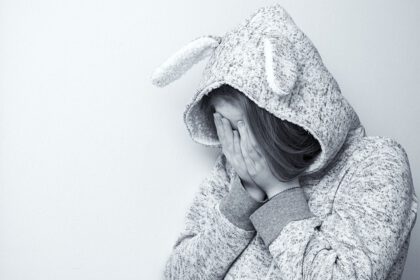Introduction to Depression
Depression is a serious mental health condition characterized by persistent feelings of sadness, hopelessness, and a lack of interest in activities. It affects millions of people worldwide, impacting not only their emotional well-being but also their physical health and quality of life.
Understanding the Causes of Depression
Depression can be influenced by a combination of biological, psychological, and environmental factors. Genetics, brain chemistry, and life events all play a role in the development of depression.
Signs and Symptoms of Depression
Recognizing the signs and symptoms of depression is crucial for early intervention. These may include feelings of sadness, fatigue, changes in appetite or sleep patterns, and withdrawal from social activities.
Importance of Seeking Help
Seeking help for depression is essential for recovery. Therapy, medication, and support groups can provide effective treatment options, helping individuals manage their symptoms and improve their quality of life.
Healthy Lifestyle Changes to Combat Depression
Making healthy lifestyle changes such as regular exercise, maintaining a balanced diet, and getting enough sleep can significantly impact mood and overall well-being.
Mindfulness and Meditation
Practicing mindfulness and meditation techniques can help reduce stress and anxiety, promoting a sense of calm and relaxation.
Building Support Networks
Strong social connections and support from friends and family are vital for coping with depression. Opening up to loved ones and seeking support can provide comfort and encouragement.
Engaging in Meaningful Activities
Pursuing hobbies, interests, and activities that bring joy and fulfillment can help lift mood and combat feelings of despair.
Cognitive Behavioral Therapy (CBT)
CBT is a type of therapy that focuses on changing negative thought patterns and behaviors, helping individuals develop healthier coping strategies and outlooks on life.
Medication and Therapy Options
Antidepressant medications and various forms of therapy, such as talk therapy and cognitive-behavioral therapy, are effective treatments for depression and can be tailored to individual needs.
Self-Care Practices
Practicing self-care involves setting boundaries, prioritizing personal needs, and showing oneself compassion and understanding.
Managing Stress
Learning to manage stress through relaxation techniques, time management, and stress-reduction activities can help prevent and alleviate symptoms of depression.
Avoiding Substance Abuse
Substance abuse can worsen symptoms of depression and interfere with treatment. Seeking help for addiction is crucial for recovery and mental well-being.
Creating a Supportive Environment
Surrounding oneself with positivity, creating a safe and nurturing environment, and seeking out sources of joy and fulfillment can help alleviate symptoms of depression.
Conclusion
Depression is a challenging condition, but it is treatable. By seeking help, making lifestyle changes, and engaging in supportive activities and relationships, individuals can reduce symptoms and improve their overall quality of life.
FAQs (Frequently Asked Questions)
- Is depression a common mental health condition?
- Yes, depression is one of the most prevalent mental health disorders globally.
- Can exercise help reduce symptoms of depression?
- Yes, regular exercise has been shown to have a positive impact on mood and overall well-being.
- How do I know if I need professional help for depression?
- If you’re experiencing persistent feelings of sadness, hopelessness, or a loss of interest in activities, it’s important to seek help from a mental health professional.
- Are there any natural remedies for depression?
- While certain lifestyle changes and practices like exercise, mindfulness, and a healthy diet can help alleviate symptoms, it’s essential to consult with a healthcare provider for personalized treatment options.
- Is it possible to recover from depression completely?
- While some individuals may experience recurrent episodes of depression, many people can effectively manage their symptoms and lead fulfilling lives with the right treatment and support.





This is very good information for the people who have depresion.
Good information about Depression
Good information about Depression
Overcoming depression was one of the hardest things to do.
Amazing project
this is the best information
Amazing project
Amazing article. Good information about depression
Great tips!!!
I love this article about how to reduce depression
Loves from Elena
Amazing article
Amazing article. Good information about depression
Thanks for Good information about depression
Very helpful for me
Just love it *_*
Thanks for this article.
best information for me
Just amazing article about how to reduce depression
Wow, It will help me a lot, Thanks
Helpful Thanks
I love how we are normalizing these discussions, thanks!
It’s great article
This article sheds light on the profound impact of depression, highlighting its far-reaching consequences on both mental and physical well-being.
The contents of this article are extremely helpful.
VERY IMPORTANT TOPIC THAT NEEDS TO DISCUSSED.
Gracias por la información me es muy útil. Excelente trabajo de investigación.
Now a days all are having Depression.
Interesting post
Great article! Understanding how to reduce depression is crucial for promoting mental well-being and fostering a happier, healthier life.
Best article about rudce dp
Very interesting article to reduce depression
Good information about reduce depression
Eye opener
i’d like to read more of this topic
Very informative article.. i hope this will helps me
Thanks for the article. I might share it to someone.
Thank you for the article. It’s very useful!
Good Information about the Depression
Nice post!
Nice thing I’m very happy
Nice post